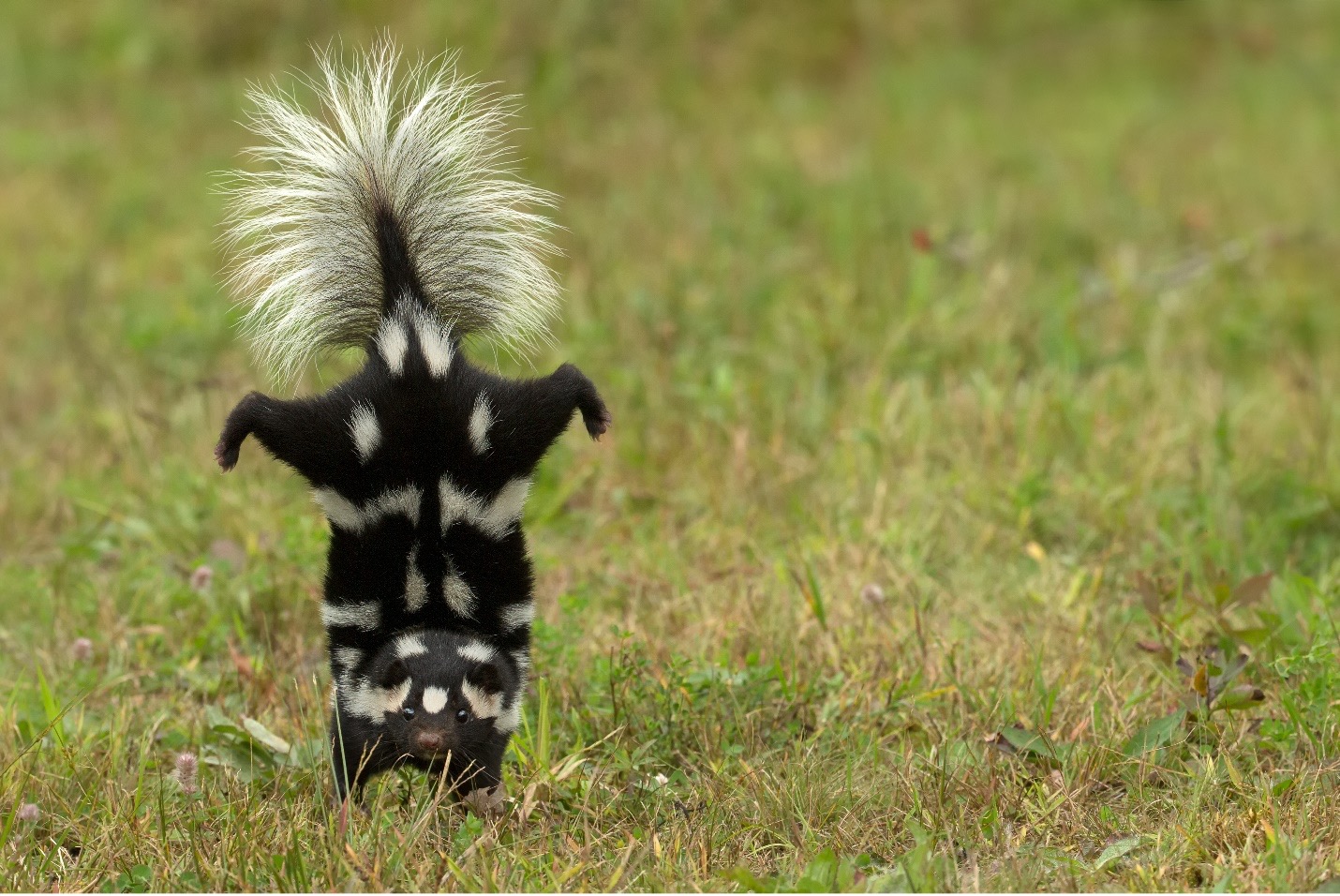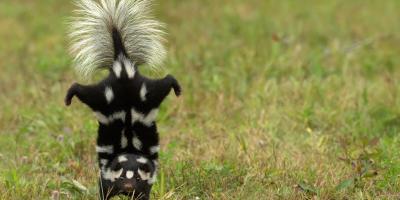There’s Love in the Air, and it Smells Like… Rotten Eggs?

Valentine’s Day might be behind us but love is still very much in the air… for skunks, at least.
If you’ve ever wondered what Cupid has in common with these aromatic critters, or why it’s so common to encounter skunks in February, read on…
Celebrating the Season of Love, Skunk-Style
It’s no coincidence that you might start seeing more skunks in February, right around the same time you’re shopping for flowers, candy hearts, and chocolates. These sightings often coincide with the first sign of warmer weather, which entices skunks to venture out of their burrows -- and for very good reason.
Skunk mating season begins each year in February and lasts through the month of March. Male skunks become more active, increasing their chances of being noticed, by females -- and, coincidentally, by you. Most males are willing to travel to find love, but only up to five miles, with the majority sticking closer to home’s 1-2 mile radius.
This explains why, if you happen to see a skunk on your property, there is usually no real cause for alarm -- or action of any kind. More than likely, the skunk is passing through on his quest to find romance.
However, if you are seeing skunks on a frequent basis, it is possible that they might be nesting nearby. This also isn’t necessarily a bad thing, but there are definitely pros and cons to having skunks near your property.
Skunks on Site: It’s Complicated
If you routinely notice skunks on your property during mating season, you might encounter the odor they emit when they feel threatened, or, in the case of male skunks, when they are fighting for a female.
Although this is more likely to occur as breeding season comes to a close, you might also catch an unfortunate whiff of skunk in the event that a female has rejected a male’s intentions by spraying him; many hold off on mating until March or April.
While this might not be cause enough to call in the pest control professionals, pet owners should take extra care when letting their four-legged friends venture outside. Dogs and skunks do not get along and Fido will likely feel the wrath of a skunk via its musky spray.
Keep in mind that skunks prefer not to spray and will usually start by hissing and stamping their feet when threatened before they show you their backside. When they do spray, they emit seven different sulfur-rich chemicals, which lend it that unmistakable rotten egg smell.
In the event that your dog is the recipient of this aromatic special delivery -- and remember, skunks can spray up to 15 feet -- don’t panic, but do move quickly in order to eliminate the odor as soon as possible.
Generally speaking, the spray will not harm your dog, unless it gets in your dog’s eyes or nose, which can cause vomiting. In this case, you’ll want to pack up your pet and get them to the vet ASAP.
On the other hand, if your dog seems fine -- just stinky -- take the following steps, and, if possible, complete them within two hours of contact:
- The hose will not help! In fact, water will only make the spray smell worse because it is oil-based, so it doesn’t mix with water.
- While you can buy skunk combatant at the pet store, if you don’t have any at the ready, simply mix 1 quart of 3% hydrogen peroxide, ¼ cup baking soda and 1-2 teaspoons of dish soap, and then apply directly to your dog’s fur, really lathering it up right through to the skin, which should eliminate the oil.
- Go ahead and give your dog a proper bath, using whatever dog shampoo you typically use.
When in doubt, it’s never a bad idea to follow up with your vet in order to ensure that your dog came away from the skunk encounter unscathed.
Aside from the potential dangers to your dog, skunks can actually prove beneficial on your property, especially if you like to garden.
Skunks eat a variety of pests, including beetles, crickets, mice, voles, and larvae of all sorts; they also feed on animal carcasses, helping to break them down and enrich the soil, which proves beneficial to our ecosystems.
Unless skunks are proving prevalent on your property, there really is no need to call the professionals for pest control. Simply protect your pets and yourself by keeping your distance, especially during mating season.



